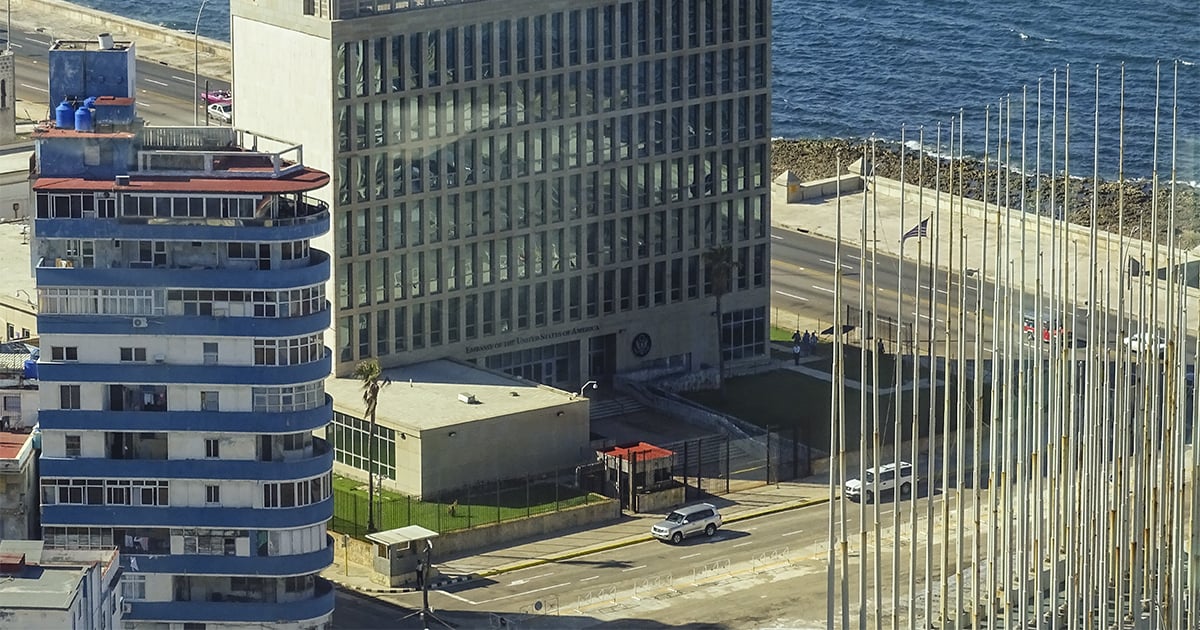In a significant move illustrating the ongoing deterioration of U.S.-Cuba relations, President Donald Trump's administration has indefinitely suspended the semi-annual migration discussions traditionally held between the two nations. A senior State Department official, speaking with journalist Wilfredo Cancio for Café Fuerte, highlighted that the "Trump administration is prioritizing an America First foreign policy. The United States will no longer engage with the Cuban regime simply for the sake of dialogue."
The most recent session of these migration talks occurred in December 2024 in the United States, with the next scheduled to take place in April in Havana. However, no new date has been set, and it no longer ranks as a priority for the current U.S. government. The cessation of these discussions closes the sole remaining official line of communication between the two countries, which was used to address critical issues such as human trafficking, migration fraud, and drug trafficking.
Historical Context of Migration Talks
These talks were previously suspended in 2018 during Trump's first term following the "Havana Syndrome" incident. They were later resumed by the Biden administration in April 2022. Since returning to the presidency, Trump has taken a tougher stance towards Cuba, including re-listing the island as a state sponsor of terrorism, reactivating the restricted entities list associated with Cuban military, and imposing restrictions on vessels coming from Cuban ports.
Additionally, the use of the Guantanamo Bay facility to house immigrants with criminal records has been criticized by the Cuban government as an "act of brutality." Some officials within the Trump administration are advocating for even more stringent measures, such as halting remittances and travel to Cuba, a call recently made by Cuban-American Congressman Carlos Giménez.
Rising Migration Tensions
Wilfredo Cancio foresaw that halting the talks could jeopardize the current deportation operations. According to official data from ICE, 42,084 Cubans with final deportation orders are under supervised release in the U.S. due to Cuba's refusal to accept them. Although monthly deportation flights had resumed in 2023—completing 24 operations and returning 1,152 individuals by March—Cuban authorities have resisted repatriating criminals or immigrants with long-term U.S. residency.
Miguel Díaz-Canel, in response, stated, "We entered into these migration agreements with the U.S. to ensure orderly, safe, and legal Cuban immigration," while condemning the new sanctions policy as "brutal, aggressive, and inhumane."
Heightened Enforcement and Visa Challenges
Concurrently, ICE has ramped up raids and arrests of immigrants, including those with criminal backgrounds or pending immigration cases, as well as individuals who concealed political ties to the Cuban regime upon entering the U.S. Visa applications for Cuban migrants or visitors now face intense scrutiny under Trump's executive order "Protecting the Nation from Foreign Terrorist Entry," signed on January 20.
Under Biden, 96,986 immigrant visas were granted to Cubans. However, the new Trump administration is reversing this trend: in February, only 1,172 visas were issued, primarily for family claims and visa lottery winners, according to the same source. Recent data from U.S. Customs and Border Protection (CBP) indicates that just 282 Cubans entered the U.S. irregularly in February and March, a stark contrast to the nearly 8,000 monthly average earlier in the fiscal year.
Implications of U.S.-Cuba Migration Policy Changes
Why has the Trump administration suspended migration talks with Cuba?
The Trump administration has halted these talks as part of its America First foreign policy, choosing not to engage with Cuba solely for maintaining dialogue.
How might the suspension of talks affect deportation operations?
The suspension could endanger current deportation operations, given Cuba's reluctance to accept deportees, impacting the status of thousands of Cubans under supervised release in the U.S.
What changes have been made to visa issuance for Cubans under Trump's administration?
Trump's administration has significantly reduced the number of visas issued to Cubans, reversing the upward trend seen during Biden's presidency, with increased scrutiny on applications.
